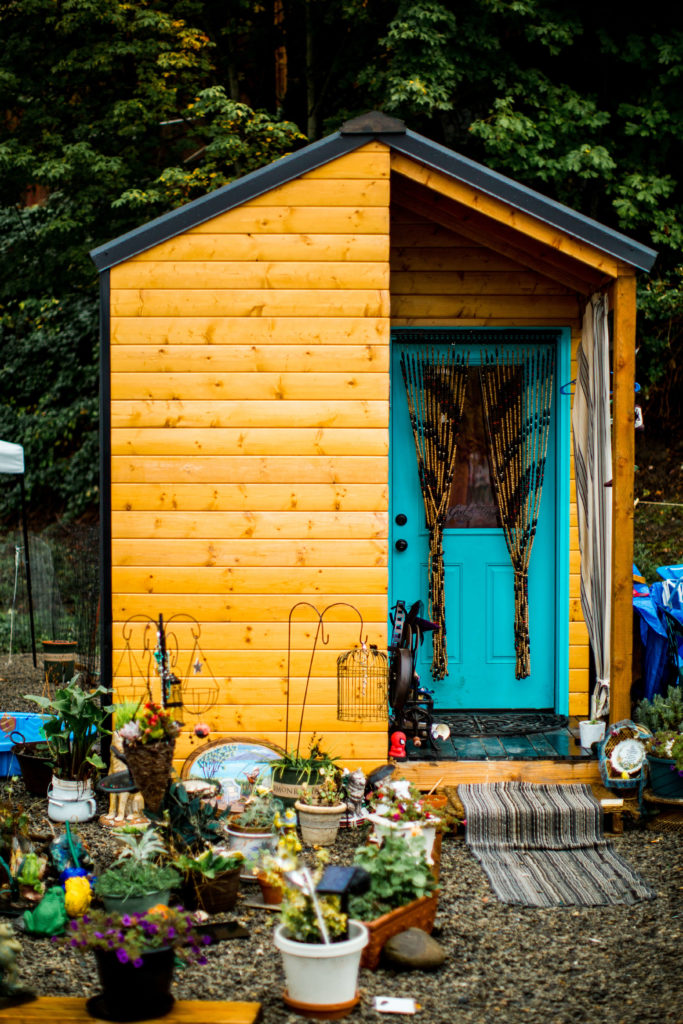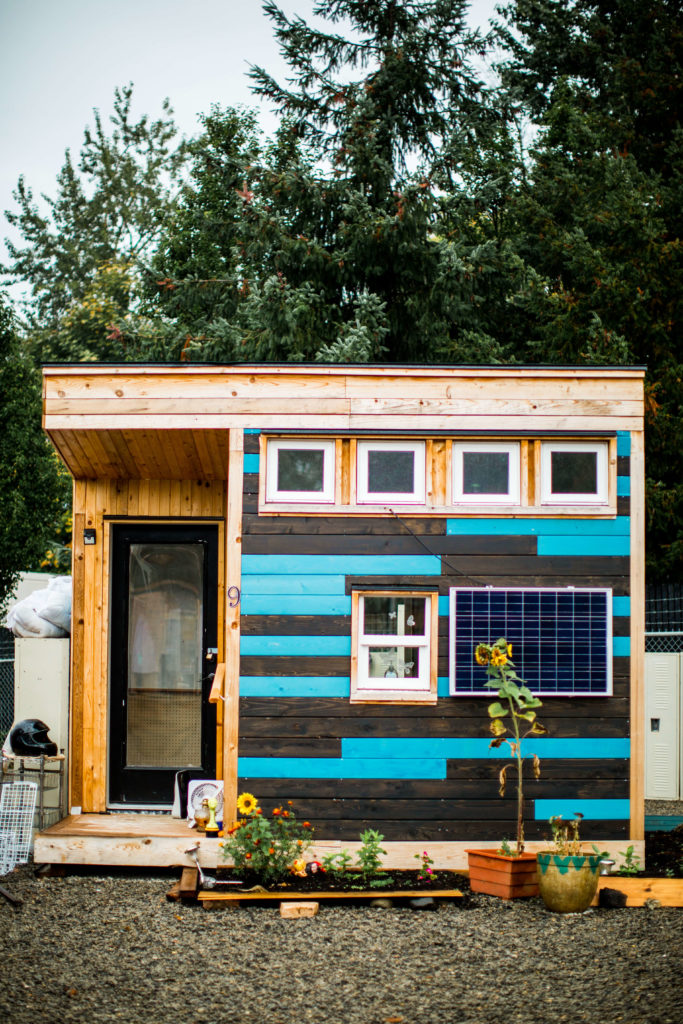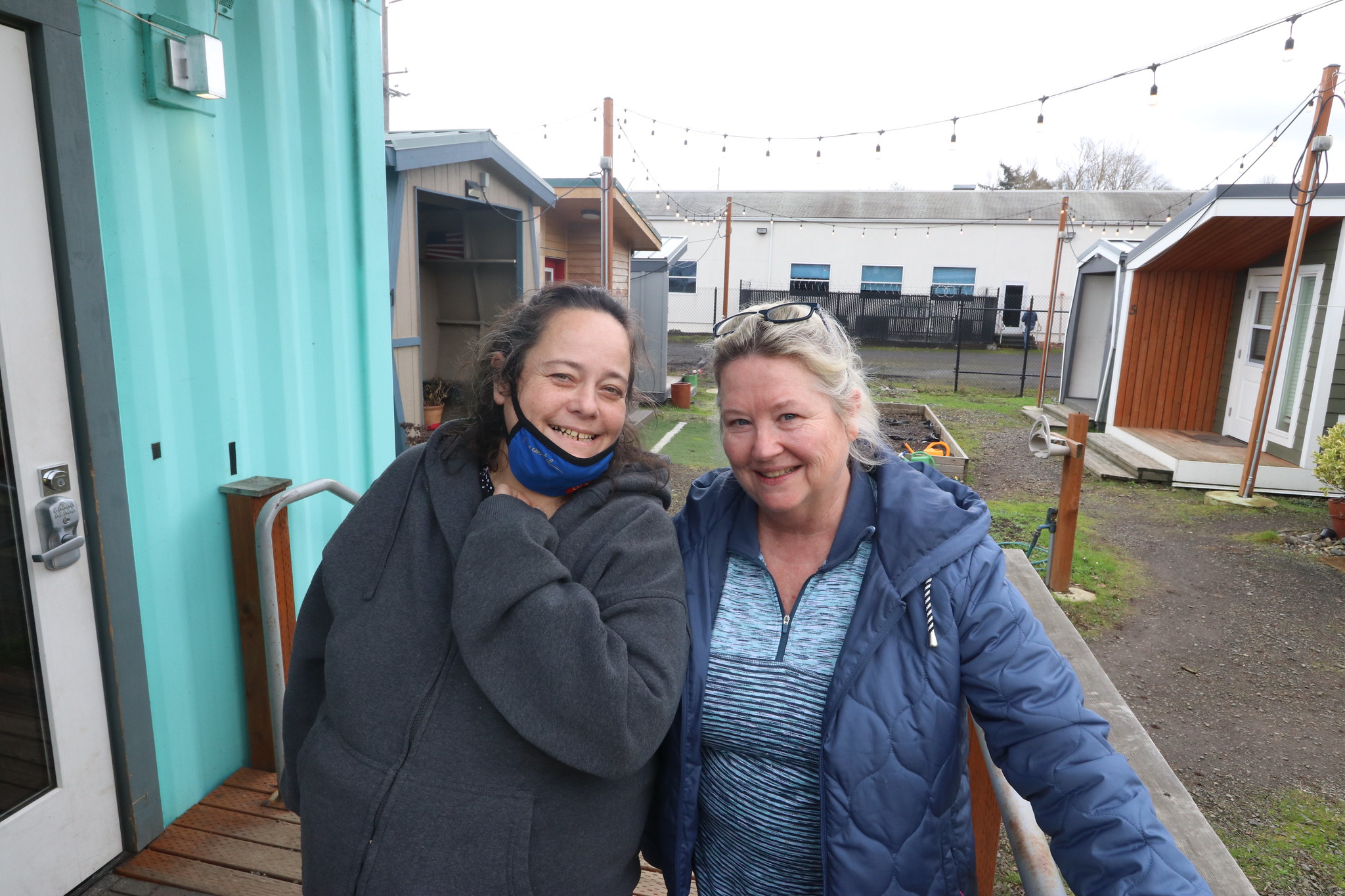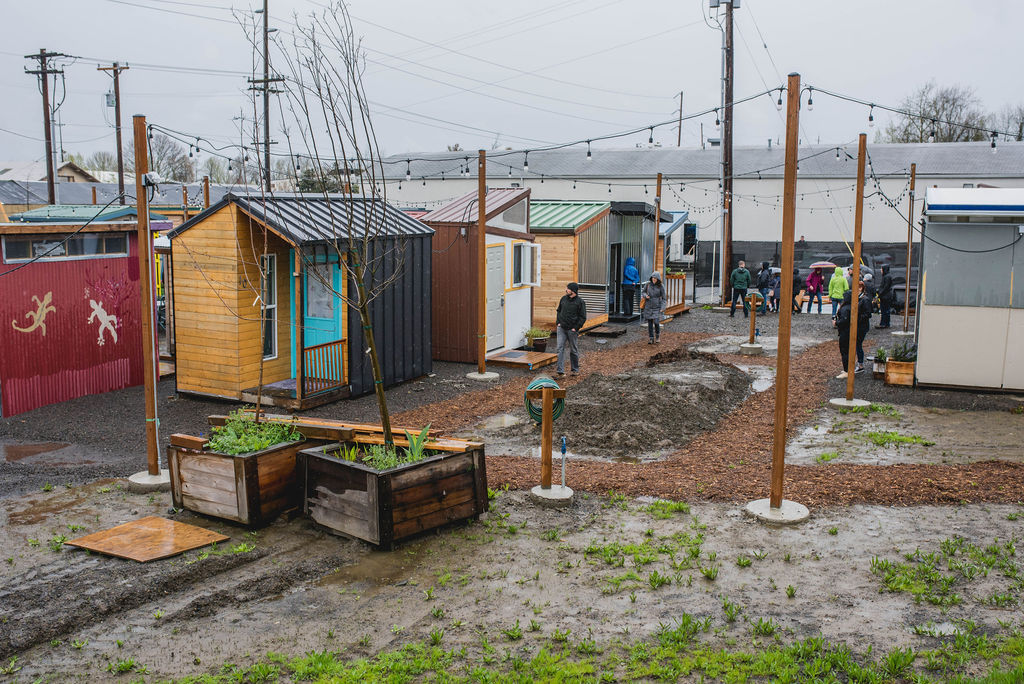Kenton Women’s Village is a creative and collaborative project, offering a new approach for addressing houselessness at a small scale. The villagers are empowered, have a sense of purpose, and take daily steps toward permanent housing.
Kenton Women's Village
The village was created through partnerships with local government, nonprofit, and educational institutions: Catholic Charities of Oregon, City of Portland, the Joint Office of Homeless Services, the Village Coalition, Prosper Portland, Almar Contracting, Portland State University School of Architecture’s Center for Public Interest Design, Kenton Neighborhood Association, Catlin Gabel InvenTeam, and dozens of other community businesses, organizations, and individuals.
The village is made up of 20 sleeping pods (no larger than 8 by 12 feet), designed and built in late 2016 as part of the Partners on Dwelling (POD) Initiative, which brought together a citywide coalition of architects, housing advocates, and houseless individuals. Due to the COVID-19 pandemic, we allow only 15 women to reside in the village at one time. Those from the Kenton neighborhood receive priority placement.
A fully operational kitchen and shower facilities, installed in customized shipping containers, have been added to the site, with water delivery and garbage service being provided. A community garden has been planted so that residents and neighbors can collaborate and interact as the women make the village their home.
Through Catholic Charities of Oregon, formerly houseless women are receiving access to services including case management, employment assistance, access to legal and financial services, mental and physical health care, and support creating and implementing a personalized plan to transition to permanent housing by the time they leave the village.

Why Is the Village Model an Innovative Approach?
- This program offers safety, security, community, and basic human needs to people who are living outside.
- A wide range of services can be offered efficiently with on-site case management, physical and mental health services, and housing placement.
- It is easier to connect villagers with community volunteers, leveraging staff hours by helping women with concrete assistance as they look for housing, education, and employment opportunities.
- Long-term and chronic houselessness can be alleviated, returning women to their communities and reducing the high cost of emergency services.

Why Tiny House Villages?
- Many women are unable to cope with the noise and lack of privacy in emergency shelters. A tiny house is private and has a locking door.
- Sleeping outside is dangerous, leaving women vulnerable to intimidation, theft, sexual assault, and physical assault. The Village is safe. Possessions are safe.
- The Village offers opportunities for community, leadership, self-governance, and self-determination.
- The short-term nature of a temporary village offers both hope and a sense of urgency for moving toward permanent housing.
In-Kind Needs
Kenton Women’s Village (KWV) is located at 2420 N Columbia Blvd. Please note that the front gate entrance is only accessible by foot. While there is no parking lot, parallel parking is available on Argyle before the Columbia-Argyle intersection.
Please do not bring unannounced donations. Please email kwv@ccoregon.org to schedule a drop-off time. Tax-deductible receipts will be provided.
Nurture health and hope in our KWV garden
Our garden is growing! Please help our villagers who are working to regain their stability and self-sufficiency access fresh, whole, and nutritious food by donating needed items, including soil, tools, seeds, and plants for the upcoming season. Click the button below to find a complete list and instructions for delivery. Thank you for your support!
We are in need of the following items:
- Toilet paper
- Pillows
- Silverware
- Mattress pads
- Paper towels
- Hand soap
- Granola bars
- Dry cereal
- Drink mixes (Crystal Light, etc.)
We are not accepting the following items at this time:
- Adult diapers
- Twin sheet sets
- Blankets
- Feminine hygiene products
- Curtains
- Clothing
- Shoes




